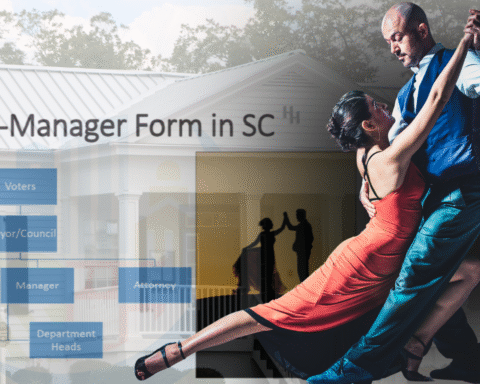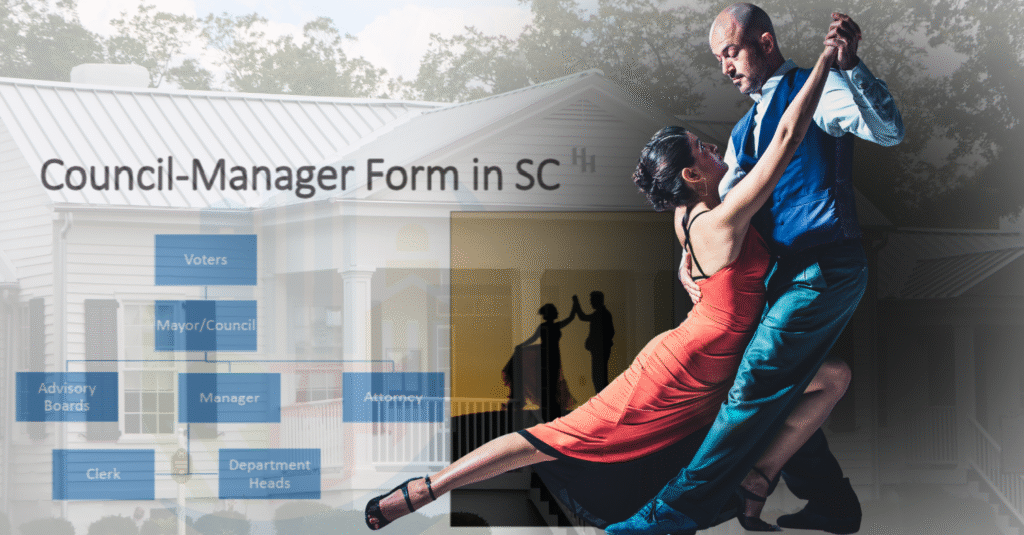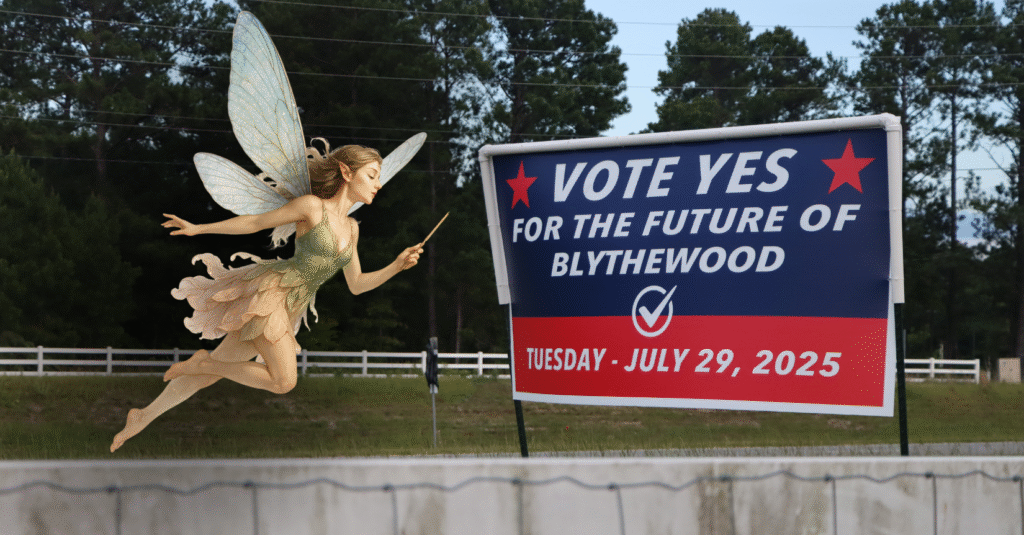Myths We Love to Believe
There are certain things in life we hold onto, not because they’re true, but because they’re comforting, magical, or just plain fun to believe in. Santa Claus sliding down the chimney with a sack of gifts. Bigfoot wandering the forests of the Pacific Northwest. The Lizard Man creeping through the swamps of South Carolina. I’ve even met someone who swears they’ve seen him.
And yes, add to that list the famous political myth of the Strong Mayor.
But deep down, we know the truth. These are stories we pass down not for their accuracy, but for what they represent. They give us characters to admire, to fear, or to fantasize about. But when it comes to local government, especially in a town like Blythewood, the myth of the Strong Mayor isn’t just a misunderstanding.
It’s a political sleight of hand.
The Real Power Behind the Phrase
And as a political operative and public relations strategist with more than 25 years of experience, let me share a truth most insiders know but would never dare say out loud:
The myth of the “Strong Mayor” doesn’t exist to describe real power.
It exists to disguise when politicians want to take power out of the hands of voters and place it in the hands of a bureaucrat, giving themselves more sway when dealing with special interests. Because at the end of the day, it’s about money, leverage, and who gets to call the shots.
The myth of the “Strong Mayor” isn’t really about the mayor at all. It’s about the voters. See, in Blythewood’s current form of government, voters elect the mayor directly. That means the mayor answers to them, not to a council clique or a hired manager behind closed doors. If the mayor makes a decision the people don’t like, they can hold him accountable at the ballot box. Simple as that.
But calling it a “strong voter system” doesn’t help the politicians who want to take that power away. So instead, they brand it as a “strong mayor,” hoping you’ll focus your frustration on the person instead of the principle. It’s sleight of hand. A rhetorical bait-and-switch. By targeting the mayor, they’re really targeting the influence voters have over their town’s direction. Strip that away, and you don’t just weaken the mayor, you weaken the people’s voice.
When the Voters Get Kicked Out of the Car
If you really want to understand what’s at stake, imagine local government like a car.
In Blythewood’s current system, the so-called “strong mayor” model, the mayor is in the driver’s seat. The council rides up front, helping navigate. And most importantly, the voters? They’re all in the back seat. They see where the car’s going. They can yell out directions. And if they don’t like the route or direction, they can vote for a new driver at the next election.
But under the council-manager system, the voters get kicked out of the car and left on the side of Boney Road. The mayor and council get slid into the back seat, and a majority of council members, let’s just say it plainly, a cartel of a few council members get together and hands the keys to a hired administrator. They pay this person a six-figure salary, give them the wheel, and tell them to drive in a direction of their choosing.
Now ask yourself: who do you think that administrator is going to listen to? The voters standing on the curb? Or the cartel of councilmembers who are responsible for their six-figure salary?
Exactly. The car is going to go wherever that small group of council members tells it to. And here’s the kicker! Even though the administrator is driving, the public still blames the mayor when things go wrong. That’s the beauty of it for the cartel. They get control without accountability.
So if you’re already seeing certain council members cartel together to take power from the voters now, what makes you think it’ll change with an administrator in charge?
What a “Yes” Vote Really Means
So, what does a yes vote really mean?
It means yes—you’re willing to be put out of the car.
Yes—you’re okay handing over your power.
Yes—you’re trusting a bureaucrat with no direct accountability to run your town.
Yes—you’re letting a small group of council members steer the whole direction of Blythewood behind closed doors.
Let’s be honest. This isn’t about professional management. That’s just the wrapping paper. What the council members pushing for a “Yes” vote are really saying is —that Blythewood’s voters are no longer smart enough to pick a leader. That the people who built this town, raised families here, and showed up to the polls year after year, are no longer qualified to decide who should lead them.
They’re saying, “Let us, the enlightened few, hire someone we can control. Someone who’ll answer to us, not to you.”
And that’s what this really is. Not a governance shift. A power grab.
We started this journey talking about myths. Santa. Bigfoot. The Lizard Man. And, of course, the Strong Mayor.
Santa gets handed down from parent to child, passed through tradition and time. Bigfoot lives in whispers and grainy photos. The Lizard Man is stitched into Southern folklore.
Those are harmless myths we pass along for fun.
But the Strong Mayor?
That myth was crafted with intention, to take something from you.
This isn’t just a story. It’s a strategy. And a “Yes” vote means handing over the keys—
not to the people you elect, but to the ones who want to rule without accountability.
Because this isn’t about fantasy.
It’s about whether Blythewood belongs to its voters—or to a chosen few who believe they should decide everything for the rest of us.





